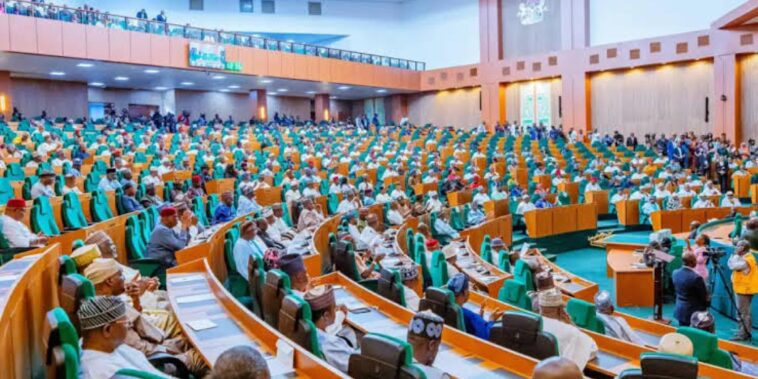The Citizenship by Investment Bill passed its second reading on Wednesday, aiming to grant Nigerian citizenship to foreign investors who meet specified financial thresholds or invest in critical sectors of the economy.
The House of Representatives has advanced a bill proposing the introduction of citizenship by investment as a new category of Nigerian nationality as part of ongoing constitutional amendments.
The Citizenship by Investment Bill passed its second reading on Wednesday, aiming to grant Nigerian citizenship to foreign investors who meet specified financial thresholds or invest in critical sectors of the economy.
Sponsored by Deputy Speaker Benjamin Kalu and other lawmakers, the bill is designed to attract foreign direct investment by offering Nigerian nationality as an incentive.
The proposed measure aligns with global practices, where countries grant citizenship to individuals who make significant contributions to economic growth.
The bill was presented by House Leader Prof. Julius Ihonvbere, alongside other proposed constitutional amendments, including a bill that seeks to guarantee indigene status to individuals based on birth, continuous residence of at least ten years, or marriage.
The Indigenous Status Bill aims to address issues of discrimination in access to social and economic benefits tied to state or local government origin.
The explanatory memorandum states that the bill aims to amend Section 31 of the Principal Act by adding new subsections as follows: “Alteration of Section 31 of the Principal Act is altered by inserting new subsections “(2) – (5).”
“(2) A citizen of Nigeria is an indigene of a State if he was born in that State and has lived in the State for a continuous period of at least 10 years; or was not born in the State but has resided in a Local Government Area of that State for a continuous period of at least 10 years and can provide evidence of tax payment in that State for at least 10 years.
“(3) A person under subsection (2) of this section is entitled to apply to the Local Government Chairman for a certificate of indigeneship of a State.
“4) A woman who is married to an indigene of a State different from her State of origin for at least five years becomes an indigene of that State and is entitled to all rights and privileges of an indigene of that State in cases of employment, appointment or election into any political or public office.
“(5) In the case of divorce or death of a spouse, a woman remains an indigene if there were children born of the marriage or not; or she elects to remain an indigene of that State.”
The legislation on the death penalty is also under review, with a proposed constitutional amendment to revise penalties for specific capital offences in line with international best practices.
According to the bill, the proposed changes aim to align Nigeria’s criminal justice system with global standards of fairness, proportionality, and human rights while ensuring public safety and addressing serious crimes effectively.
Additionally, the Office of the Accountant-General of the Federation Bill seeks to amend the Constitution to formally establish both the Office of the Accountant-General of the Federation and the Office of the Accountant-General of the Federal Government.
The bill stipulates that the Accountant-General of the Federal Government will serve a four-year term, which may be renewed for another four years by the President.
It further states that the officeholder shall remain in position until reaching the age of 60 or completing 35 years of public service, whichever comes first.



